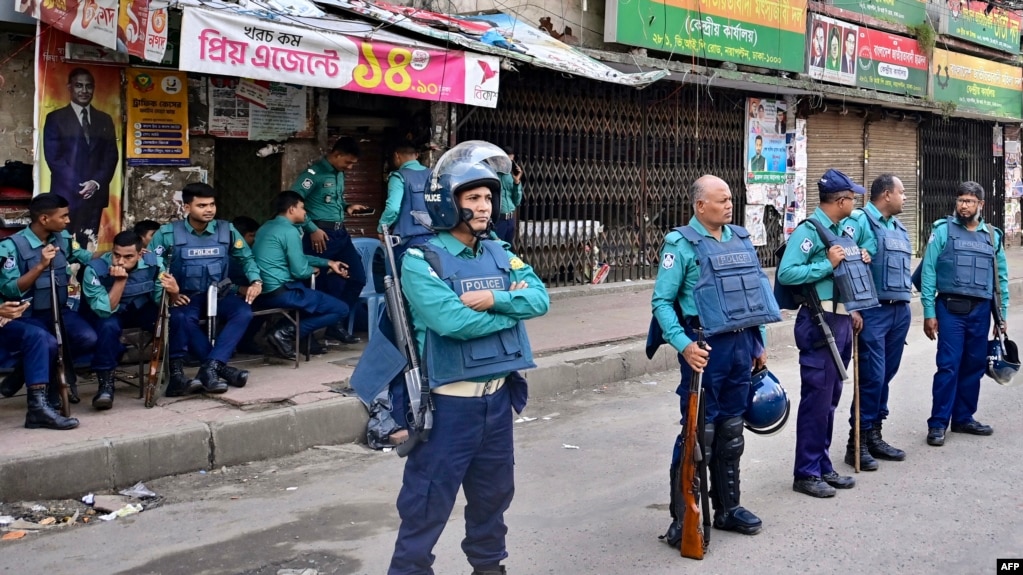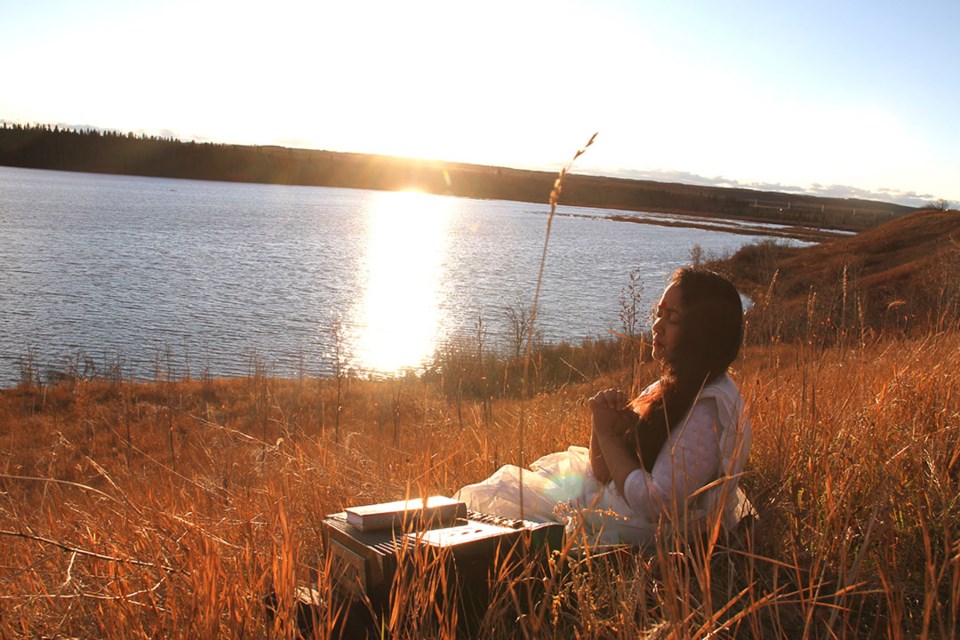The US and Soviet Union never came to direct blows but fought for decades through proxies and interventions. Today Ukraine, Syria and Gaza are local conflicts with global implications.
Opinion
Hal Brands, Columnist
November 26, 2023
The conflict between Israel and Hamas is the most recent round in the long-running struggle between the Jewish state and its enemies. It is a fight to determine whether Iran’s “axis of resistance,” or a loose coalition led by the US, has the edge in a vital region. But this conflict also has a larger global salience: It is one of a series of hot wars at the center of the new cold war playing out around the world.
Cold wars are never as cold — never as peaceful — as their name implies. The US-Soviet struggle from 1947 to 1991 featured dozens of civil wars, proxy wars, and even serious conventional conflicts in places from the Korean Peninsula to Central America. These wars roiled entire regions; in a few cases, they threatened to engulf the globe. Today, a new cold war pits the US and its allies against an axis of Eurasian autocracies. That struggle, too, features some very violent clashes, of which the Israel-Hamas war is the latest, but surely not the last.
In prolonged global contests, these “small wars” can have outsized consequences. They reshape the geopolitical chessboard; they help determine which side will be best prepared if the larger cold war turns hot. They can be sources of strategic advantage, or strategic misery, for the great powers that get involved.
Such conflicts profoundly influenced the course and eventual conclusion of the US-Soviet Cold War. Prevailing in today’s cold war will require navigating the myriad hot wars the US and its friends are likely to encounter along the way.
Only in Europe was the original Cold War truly a “long peace.” Almost everywhere else, it was a cauldron of violence. Civil wars and insurgencies convulsed the Global South. Major conventional wars remade places such as Korea, Vietnam and the Middle East. Superpower involvement in these conflicts — with arms, money or military forces — was omnipresent, even though Moscow and Washington never quite came to blows. The US ultimately lost roughly 100,000 military personnel in the Cold War’s hot wars; all told, the conflicts of the era claimed 20 million lives.
The body counts were ghastly, but unsurprising. Nuclear stalemate fostered stability in superpower relations by giving both sides good reason to avoid all-out war. The division of Europe into coherent, clearly organized blocs meant that red lines in that theater were, eventually, well-understood.
But in a zero-sum contest for geopolitical and ideological mastery, the superpowers — especially the Soviets — simply looked elsewhere for advantage. And the instability that afflicted the developing regions, due primarily to de-colonization and the ideological radicalism of the post-1945 period, created a mass of kindling that Cold War frictions helped ignite.
Significant Hot Conflicts of Cold War I
The Soviet Union and US battled behind the scenes for four decades
Sometimes, Moscow played provocateur in regional conflicts, in hopes of expanding where US red lines were poorly drawn. Joseph Stalin approved North Korea’s invasion of South Korea in 1950, after US officials had left that country outside Washington’s defense perimeter. His successors sought to outflank strong Western positions in Europe and East Asia by supporting insurgents and revolutionaries from Cuba to Vietnam.
In many cases, however, the US ended up resisting, not least because it believed these brushfire wars were tests of strategic commitment. If Washington couldn’t check communist coercion or subversion on the global periphery, why would allies in Europe and East Asia entrust their security to the US?
Hot wars were thus the cut and thrust of the larger superpower competition. They offered opportunities to bleed the enemy, as the Soviet Union did by giving North Vietnam anti-aircraft missiles that devastated American planes and pilots. They were viewed, globally, as tests of capability as well as commitment: If Egypt and Syria defeated Israel in the October War of 1973, Richard Nixon worried, the outcome would be seen as a triumph of Soviet arms over American arms.
Small wars were also laboratories for ideas and weapons that might figure in larger wars. The lessons the Pentagon drew from the October War, about the lethality of modern air defenses and the potential of precision-guided munitions, led to investments in stealth technology, long-range strike weapons and other revolutionary capabilities that would transform the Cold War military balance in America’s favor.
From start to finish, in fact, peripheral conflicts shaped the superpower struggle. The Korean War helped forge the free world: Fears that the North Korean invasion presaged a larger communist assault led Washington to build or fortify a network of alliances around the globe. Two decades later, America’s costly defeat in Vietnam nearly ruptured the free world, while convincing Moscow and its allies that they had the global initiative. There followed communist interventions in Angola, the Horn of Africa, Central America and Afghanistan, which destroyed the superpower détente of the 1970s — and invited a decisive US counteroffensive.
During the 1980s, President Ronald Reagan’s administration punished an overextended Soviet Union by supporting anticommunist insurgents battling Kremlin troops or proxies. The most crucial theater was Afghanistan, where US-backed fighters battered and ultimately banished the Red Army. When Moscow withdrew from that country in 1989, it prefaced the larger geopolitical surrender that brought the Cold War to its end.
Of course, the superpowers weren’t always in control: The proxies they armed, financed and supported had agendas of their own. And if the Cold War’s small wars eventually broke the Soviet Union, they often threatened to escalate disastrously as well.
The Korean War nearly turned into a third world war after a US attempt to reunify the entire peninsula invited Communist China to intervene. The October War eventually produced threats of Soviet military intervention to save Syria and Egypt from defeat — and then a US nuclear alert to call the Kremlin’s bluff. In a tense, bipolar environment, a fire in some obscure location could cause a global conflagration.
In some ways, today’s world looks little like the Cold War. Complex interdependence binds the US and China in an awkward embrace. America’s rivals are not part of a single ideological movement like communism. There is no contemporary equivalent to de-colonization, which wrought such chaos because it gave birth to so many countries in so little time. But cold wars — long, high-stakes struggles in the murky area between war and peace — take many forms.
A cohort of Eurasian autocracies — China, Russia, Iran, North Korea — is cohering around shared opposition to the present international system. These countries have all long contested an American-supported status quo in their respective regions; they seek a future in which US power is blunted and democratic values are further weakened. Now, they are developing stronger connections — military, economic, technological, diplomatic — to one another.
A US-led community of democracies — along with some more-or-less friendly dictators — is facing off against a new revisionist coalition, while non- or multi-aligned states try to avoid committing either way. And as international tensions intensify, wars in sensitive places serve as tests of strength between the two sides.
President Joe Biden has said ongoing conflicts in Ukraine and the Middle East are part of a larger struggle between democracies and enemies that want to “completely annihilate” them. Russian President Vladimir Putin, for his part, avows that Hamas terrorists battling Israel, and Russian soldiers pillaging Ukraine, are fighting the same American “root of evil,” and the outcomes “will decide the fate of Russia, and of the entire world.” Indeed, hot wars have been shaping this emerging cold war for some time.
Consider the Syrian civil war, the bloodiest and most consequential conflict of the 2010s. That clash was a proxy war in which a regime backed militarily by Russia and Iran, and diplomatically by China, bested a revolt supported by several Middle Eastern governments and, reportedly, the US. It remade the Middle East, mostly to America’s disadvantage.
Iran used the conflict to flood Syria with fighters, deepen its partnership with the Lebanese terrorist group Hezbollah, and strengthen its position along Israel’s northern frontier.
Russia re-established itself as a Middle Eastern power by showing that it would intervene decisively on behalf of its friends. Moscow had broken the “chain of color revolutions” in places such as Georgia and Ukraine, Defense Minister Sergei Shoigu declared: No longer could America and its friends topple governments they disliked.
The Syrian conflict overlapped with another geopolitically salient civil war, in Yemen. The collapse of that country’s government in 2014, and the growing reach of a Houthi movement with ties to Iran, triggered military intervention by Saudi Arabia and the United Arab Emirates. Washington was never enthusiastic about that endeavor — then-deputy crown prince Mohammed bin Salman’s “stupid f-ing ground war,” as one US official termed it — but for lack of better options, it supported its Gulf partners with weapons and intelligence.
This conflict, too, went badly for Washington: The Houthis still control a sizable swath of Yemen, along with Iranian-provided drones and missiles that they have used against their enemies — and Tehran’s. When a US warship shot down Houthi drones and missiles headed for Israel in October 2023, the incident showed how intertwined events in Yemen have become with the region’s larger contest for power. So did the Houthis’ seizure on Nov. 20 of a British-owned cargo ship they claimed has ties to Israel.
Or consider the war in Ukraine, which began in 2014 and escalated in 2022, when Putin sought to conquer the whole country. Had that attack succeeded, it would have endangered Eastern Europe and restored Russian supremacy in most of the former Soviet Union. It also would have trampled the post-1945 norm against territorial conquest and annexation, creating a precedent other revisionists might exploit. Putin’s war in Ukraine was no local matter: It was meant to upend the larger order, in Europe and globally, that the US anchors.
Yet the invasion failed, in part because Washington and its allies understood these stakes all too well. So they turned Ukraine into Afghanistan-on-steroids, giving Kyiv the money, weapons and intelligence it used to kill vast numbers of Russian troops. The goal, Secretary of Defense Lloyd Austin candidly explained, was to see Russia “weakened.” Meanwhile, the war was consolidating ties among both advanced democracies on one side and Eurasian autocracies on the other — a reminder of how hot wars can serve as the crucibles in which competing coalitions are forged.
The Israel-Hamas war is part of this pattern. It started 50 years nearly to the day after the October War, and its implications could be just as far-reaching.
Prior to this war, Iran had been trying to surround Israel with well-armed proxy forces. Washington had been trying to assemble a coalition, featuring Israel and Saudi Arabia, to balance Tehran and its allies — an effort Hamas sought to spoil by sparking a bloody war that would polarize the region along Arab-Israeli lines.
The international dimensions of the war have only become more pronounced since Oct. 7. The US has supported Israel with weapons, intelligence and military advice. It has also sought to deter intervention by Iran or Hezbollah, even sending two carrier strike groups to the Eastern Mediterranean, and thereby help Israel destroy Hamas one-on-one.
Yet Hamas’s partners aren’t simply standing by. Tehran has encouraged other proxies to launch violent strikes against US forces in the region. Hezbollah is engaged in a violent tit-for-tat with Israel in the north. Russia has hosted Hamas leaders and amplified the group’s propaganda. Both Moscow and, more subtly, Beijing, are trying to exploit international anger over Israeli tactics in Gaza to make Washington pay a diplomatic price with the Global South. They understand that a war in a tiny strip of territory has much larger significance.
There’s no guarantee that such conflicts will stay contained. In 2018, US forces slaughtered perhaps 200 Russian mercenaries who got too close to an American base in Syria. In Ukraine, there have also been close calls: At one point, a Russian pilot tried, and narrowly failed, to shoot down a British plane over the Black Sea. Iran and its allies are presently working very hard to kill US soldiers; in some cases, they haven’t missed by much. When small wars take on bigger consequences, the potential for escalation is very real.
If history is any guide, the Israel-Hamas is a portent: A volatile, divided world offers too many possibilities for repetition. America can prepare for the challenges such conflicts pose by keeping six lessons in mind.
First, hot wars set the tone for cold wars. They shape alignments in key regions; they reveal the larger military balance; they determine whether aggression will be rewarded or punished. So even localized wars can have a long afterlife. For example, Soviet leaders came away from the Korean War believing their support for a brazen land-grab had backfired, which was why Moscow was subsequently more reticent about trying something like that again.
Ukraine, then, is hardly a sideshow. That war’s outcome will affect how countries around the world assess the balance between the US and its enemies — and how Putin and Chinese leader Xi Jinping view the prospects for violent revisionism in the future.
Second, use small wars to prepare for — and deter — bigger ones. The lessons America learned from the October War informed concepts and capabilities that transformed the US-Soviet military balance a decade later. Right now, wars in the Middle East and Ukraine are teaching us about the uses of drones and artificial intelligence, the shifting balance between offense and defense, and the possibilities and limits of maneuver warfare in a world of ubiquitous surveillance. No two wars are exactly alike. But the more America mines today’s conflicts for insights, the better it will fare in tomorrow’s trials.
Third, look for opportunities to strengthen coalitions and weaken enemies. Acts of aggression, by rival great powers or their proxies, can deliver the shock that forces defenders of the status quo to lock arms. And when an adversary overextends itself, a shrewd competitor will look for opportunities to intensify the pain. Today, the vindication of Ukrainian sovereignty is surely a prize worth seeking. In a protracted competition with Moscow and its partners, inflicting catastrophic damage on Russia’s army, suppressing its economy and expanding and energizing the Western coalition are prizes greater still.
Supporting local allies relates to a fourth lesson, however, which is that proxies have minds and methods of their own. Intervention by proxy can be a cost-effective way of imposing costs on an enemy, or of simply managing a situation when direct intervention is too dangerous. But proxies find ways of making their patrons sweat. During the 1970s, it was Cuba that often forced the pace of Eastern Bloc intervention in Africa, with results that were ultimately disastrous for the Soviet Union itself. The US, for its part, supported right-wing rulers who battled communism with vicious brutality in Latin America and elsewhere. In a long, draining contest for supremacy, Washington will have good reasons to outsource interventions. But doing so heightens dependence on actors who may not fully share one’s morality — or one’s interests.
Fifth, keeping small wars contained — while exploiting the opportunities they present — requires artful escalation control. Any involvement in localized wars is fraught because it brings the risk of spreading regionally and beyond. On the other hand, restraint may not be the best guarantee of peace, if it persuades the adversary to keep pushing: Witness the limited impact the Pentagon’s occasional pinprick strikes have had recently in stemming Tehran’s bid for American blood. Shaping smaller wars involves successfully coercing one’s adversaries — which requires running risks and threatening serious consequences no less than it requires wise restraint.
That restraint is important, though, because a final lesson is, don’t overcommit. The US did best during the Cold War when it exploited a rival’s excesses. It did worst when its own interventions became all-consuming. Vietnam, where over 58,000 US military personnel were eventually killed, was the tragic exemplar: That conflict weakened free-world positions almost everywhere and ruptured the Cold War consensus it was meant to serve.
There is no mathematical formula for determining how much is too much. If there were, Washington would never get such decisions wrong. But no matter the stakes of a small war, there is always a point at which greater involvement can become destructive to the global ends Washington must keep in sight. In dealing with the hot wars in this new cold war, America’s foremost challenge will be knowing when to get involved — and just as important, when to stop.

By Hal Brands is a Bloomberg Opinion columnist and the Henry Kissinger Distinguished Professor at Johns Hopkins University’s School of Advanced International Studies.







:quality(70)/cloudfront-eu-central-1.images.arcpublishing.com/thenational/OJ4K5HKCQSDWWC5QLCDPYHN4PM.jpg)
:quality(70)/d27020bajtkr6c.cloudfront.net/07-07-2021/t_15446c7ff9ac4b7bbcb79faf1a3e8b84_name_solarthumb.jpg)

:quality(70):focal(2650x1955:2660x1965)/cloudfront-eu-central-1.images.arcpublishing.com/thenational/IT6MDM5AMBF6RA7BWOVBNIZVWA.JPG)
:quality(70)/cloudfront-eu-central-1.images.arcpublishing.com/thenational/H37YE2KSGBEHVHBTSHKU5MOO3M.JPG)
:quality(70)/cloudfront-eu-central-1.images.arcpublishing.com/thenational/LP5W3NKXKBEKJGOHUBYMLORQQI.JPG)
:quality(70)/cloudfront-eu-central-1.images.arcpublishing.com/thenational/VB3ULBTOHBFRLIFOQ33RCBTB7E.JPG)
:quality(70)/cloudfront-eu-central-1.images.arcpublishing.com/thenational/STIQCX32QZCWROSTWOVLI4O4EI.JPG)
:quality(70)/cloudfront-eu-central-1.images.arcpublishing.com/thenational/J27H6ER45NEWZPEKGWDZQNAIJA.JPG)
:quality(70)/cloudfront-eu-central-1.images.arcpublishing.com/thenational/Q235MEPHKFDJVH44C7UEA5PSVQ.JPG)
:quality(70)/cloudfront-eu-central-1.images.arcpublishing.com/thenational/UZRI5CQOX5EG3N5S2ACCOYAV34.JPG)
:quality(70)/cloudfront-eu-central-1.images.arcpublishing.com/thenational/35YUZAX6EZEVFHEO4DYJCW27O4.JPG)
:quality(70)/cloudfront-eu-central-1.images.arcpublishing.com/thenational/A4DKCXSLXNH3NCMHELPQ5RYDBE.JPG)
:quality(70)/cloudfront-eu-central-1.images.arcpublishing.com/thenational/A43XIHXQYFGQVLM5AEGEEXRYJQ.JPG)
:quality(70)/cloudfront-eu-central-1.images.arcpublishing.com/thenational/E7Y3J4HLYVGNBAZSZYSS43K7LQ.JPG)
:quality(70)/cloudfront-eu-central-1.images.arcpublishing.com/thenational/NTE5LMPLA5FTXBUXMUW7MUS7DE.JPG)







